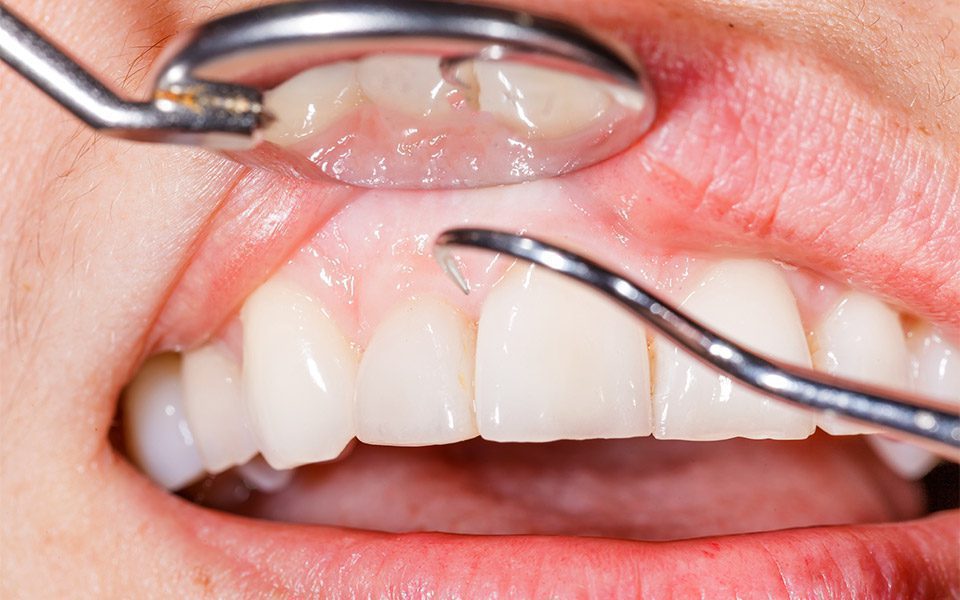Periodontal and Gum Disease Treatments
Periodontal disease is an infection caused by bacteria and affects the gums and bone if not treated. Periodontal disease can cause you to lose your teeth. This bacteria has been found to increase the risk of other health-related issues such as:
- Diabetes
- Pre-term and low birth-weight babies
- Heart disease and stroke
- Osteoporosis
- Respiratory infections and diseases
Periodontal treatments depend on the type of gum disease and how severe it is. If the disease is caught early and no damage has been done to the supporting structures under the teeth, you may simply need a professional cleaning. Schedule a visit with our Anderson or Fortville office today.
Common Questions
How did you get periodontal disease?
The root of the disease is gingivitis. The bacteria causes the gums to become inflamed and bleed.
The American Dental Association (ADA) states that nearly 75% of the U.S. adults over age 35 have some form of gum disease.
What are the symptoms of periodontal disease?
Some common symptoms of periodontal disease are:
- Red, puffy or bleeding gums
- Foul odor or taste in your mouth
- Loose or shifting teeth
- Gums that recede, or shrink, and make the teeth appear longer
Does periodontal and gum disease treatments work?
Yes! 85% of patients who get diagnosed at an early stage will see an improvement quickly. Treatment works best before there is severe damage to the tissue that attaches the teeth to the bone. Treatments also work better when teeth are not missing.
Always look for the early warning signs of gum disease as listed above! If you smoke, treatments might be more difficult than if you don’t. Since periodontal disease is a contributing factor to many other health risks, periodontal treatments might help lower other health issues.
Will periodontal treatment hurt?
There might be slight discomfort from periodontal treatment, but it will most likely be less than what you expect. Half of patients reported feeling fearful before treatment and less than 10 percent of those patients felt any extreme discomfort according to the American Academy of Periodontology.
Most periodontists use various methods to help their patients deal with their fear. After treatment, over-the-counter or prescription painkillers are available to take care of most discomfort or pain.
Is there maintenance after periodontal treatment?
After your treatment, you must come back and see us regarding ongoing maintenance therapy to prevent recurrence of the disease. During these visits your dentist will examine your gums, check your bite and remove new plaque and tartar. The frequency of these visits depend on how controlled your gum disease is.
The best way to control your ongoing maintenance program is to practice healthy dental habits including: brushing, flossing, and properly rinsing mouth!

Request an Appointment
We want to see your best smile. Become part of the Advanced Dental Care family by scheduling your appointment today!
